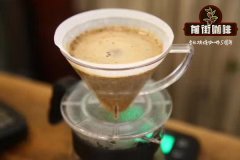Research on Coffee brewing: the effect of different Water quality on Coffee

Professional coffee knowledge exchange more coffee bean information please follow the coffee workshop (Wechat official account cafe_style)
Ph value of water
The PH value refers to the strength values of acidity and alkalinity in aqueous solution. When the water is at 25 ℃, a PH value of 7 means neutral, a PH value greater than 7 indicates a stronger alkalinity, and a PH value less than 7 indicates a stronger acidity. The stronger the alkalinity, the stronger the ability to counteract the acid; the stronger the acidity, the stronger the ability to be counteracted by alkalinity.
Soft and hard water (soft water VS hard water)
Water contains many kinds of minerals, such as calcium ion, magnesium ion, calcium carbonate. Its mineral content is mg/l, and water can be simply divided into two kinds: soft water and hard water.
Soft water: the content of calcium carbonate in water is lower than that of 100mg/l. Brewing in soft water can highlight the sour taste of coffee.
Hard water: water contains more calcium carbonate than 100mg/l. Hard water can highlight the bitterness of coffee.
When the content of calcium or magnesium ion in water is too high, it is easy to affect the release of caffeine and tannin; in addition, the bitterness of coffee is also difficult to dissolve in low hardness water, but the effect of coffee flavor also depends on individual taste. We can only say that water will have a certain impact on coffee flavor.
Total solid content soluble in water (TDS Total Dissolved Solids)
Also known as total salinity. Refers to the total amount of dissolved components in water, including the total amount of various ions, molecules and compounds dissolved in water, excluding suspended solids and dissolved gases.
According to the research of American Fine Coffee Association (SCAA), the ppm value of water is between 125and 175. it is the most ideal to extract coffee, and it is easy to reach an ideal value of concentration and extraction rate.
The reason is that when the ppm value is less than 75, it is more likely to be over-extracted, while when the ppm value is higher than 225, it is more likely to be underextracted.
Does "the most suitable water" exist?
If you want to make coffee taste better with high-quality water, but you don't want to test as much water as Ivan, good news! The World Fine Coffee Association has published reference standards for water use:
The water used to extract coffee should be clean and odorless, with calcium carbonate between 50 and 175 PPM (water hardness), alkalinity between 40 and 75 PPM, and pH between 6 and 8. But is it easy to meet all the conditions? The quality of tap water varies from region to region and varies from day to day. The quality of bottled water is relatively stable, but the composition of each brand of water is not necessarily the same.
Is the coffee good? is the quality of the coffee bad?
I really will!
Low PH value: it can show the original flavor of coffee.
High PH value: easy to produce high salty taste.
Mineral springs with higher content of sodium ions are also more salty.
Mineral springs with high lithium or potassium ions have a slightly bitter taste.
Soft water tastes softer and softer to drink.
The sweetness of the boiled hard water is higher and the level is more obvious.
Important Notice :
前街咖啡 FrontStreet Coffee has moved to new addredd:
FrontStreet Coffee Address: 315,Donghua East Road,GuangZhou
Tel:020 38364473
- Prev

Research on Coffee brewing: the effect of different Water quality on Coffee
Professional coffee knowledge exchange more information about coffee beans Please pay attention to the PH value of water in the coffee shop (Wechat official account cafe_style). The PH value refers to the strength of acidity and alkalinity in the aqueous solution. When the water is at 25 ℃, a PH value of 7 means neutral, a PH value greater than 7 indicates a stronger alkalinity, and a PH value less than 7 indicates a stronger acidity. The stronger the alkalinity, the stronger the ability to counteract the acid; the stronger the acidity, the stronger the acid.
- Next

What kind of black coffee suits you? Comparison of the taste of light and deep-roasted hand-brewed coffee
Professional coffee knowledge exchange more coffee bean information please follow the boss of the coffee workshop (Wechat official account cafe_style) I need a cup of deep-roasted coffee because I am very tired and need caffeine! Is there a contradiction in this sentence? Is it true that there is more caffeine in deep baking? Or you.
Related
- Beginners will see the "Coffee pull flower" guide!
- What is the difference between ice blog purified milk and ordinary milk coffee?
- Why is the Philippines the largest producer of crops in Liberia?
- For coffee extraction, should the fine powder be retained?
- How does extracted espresso fill pressed powder? How much strength does it take to press the powder?
- How to make jasmine cold extract coffee? Is the jasmine + latte good?
- Will this little toy really make the coffee taste better? How does Lily Drip affect coffee extraction?
- Will the action of slapping the filter cup also affect coffee extraction?
- What's the difference between powder-to-water ratio and powder-to-liquid ratio?
- What is the Ethiopian local species? What does it have to do with Heirloom native species?

